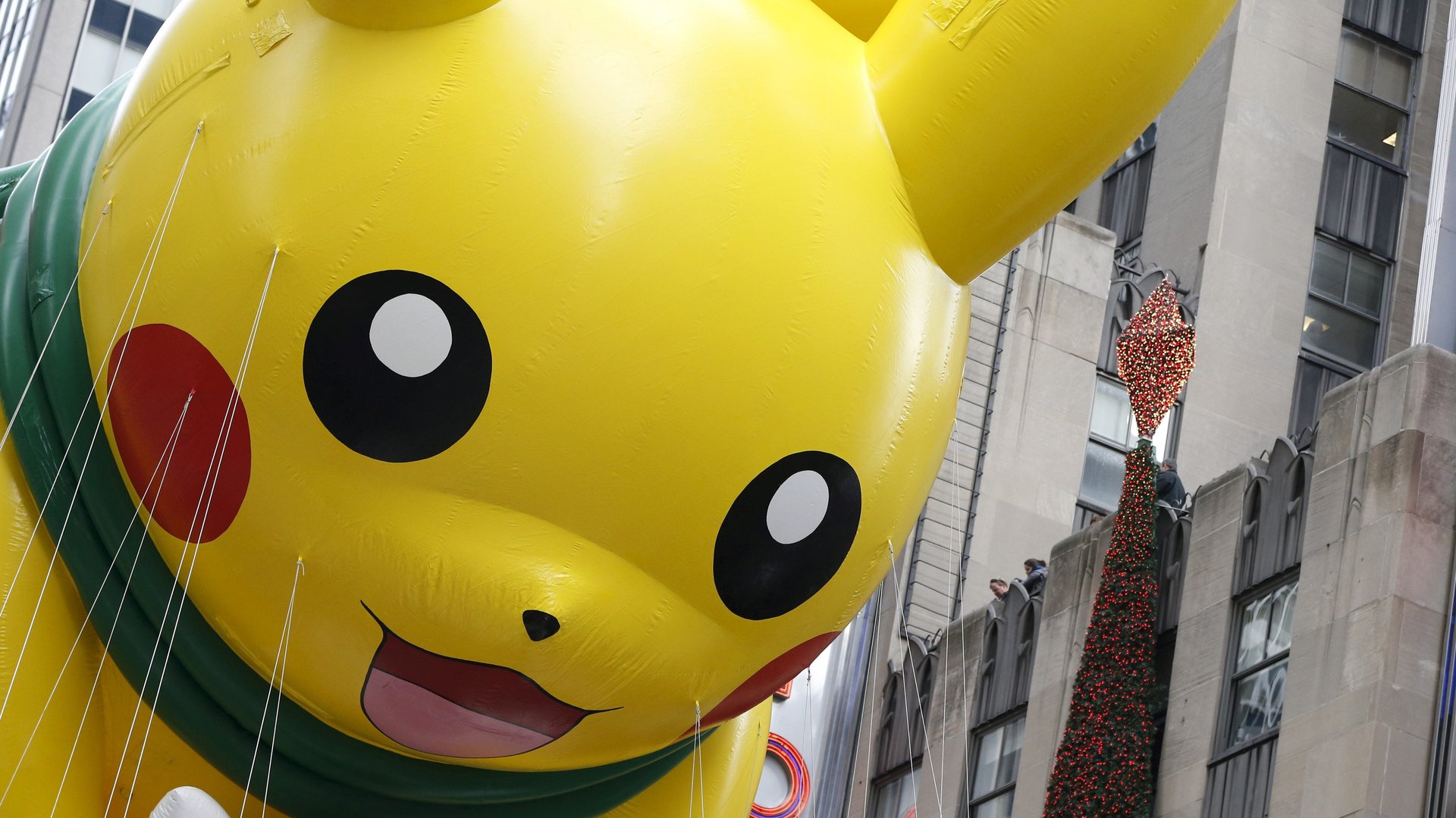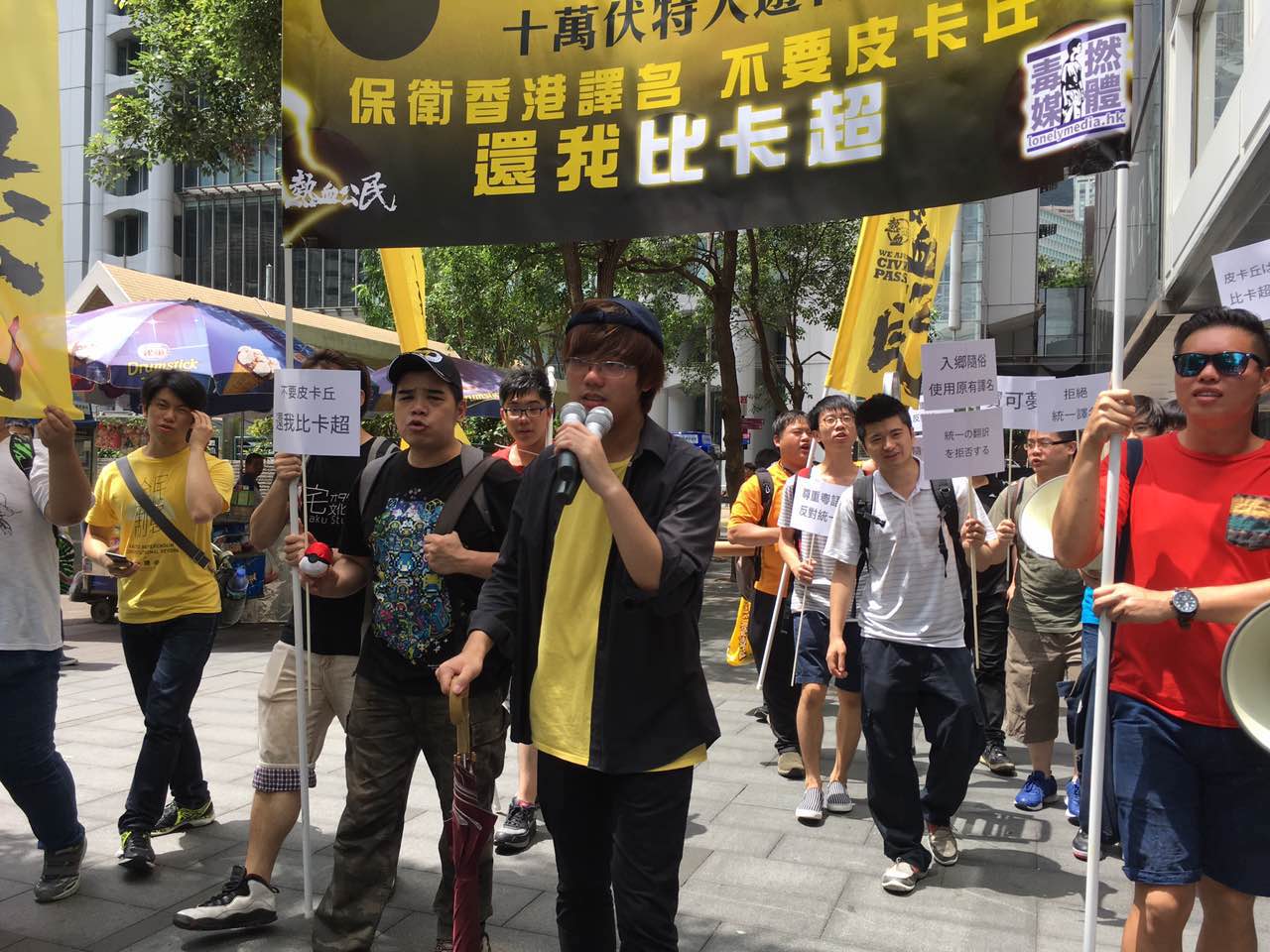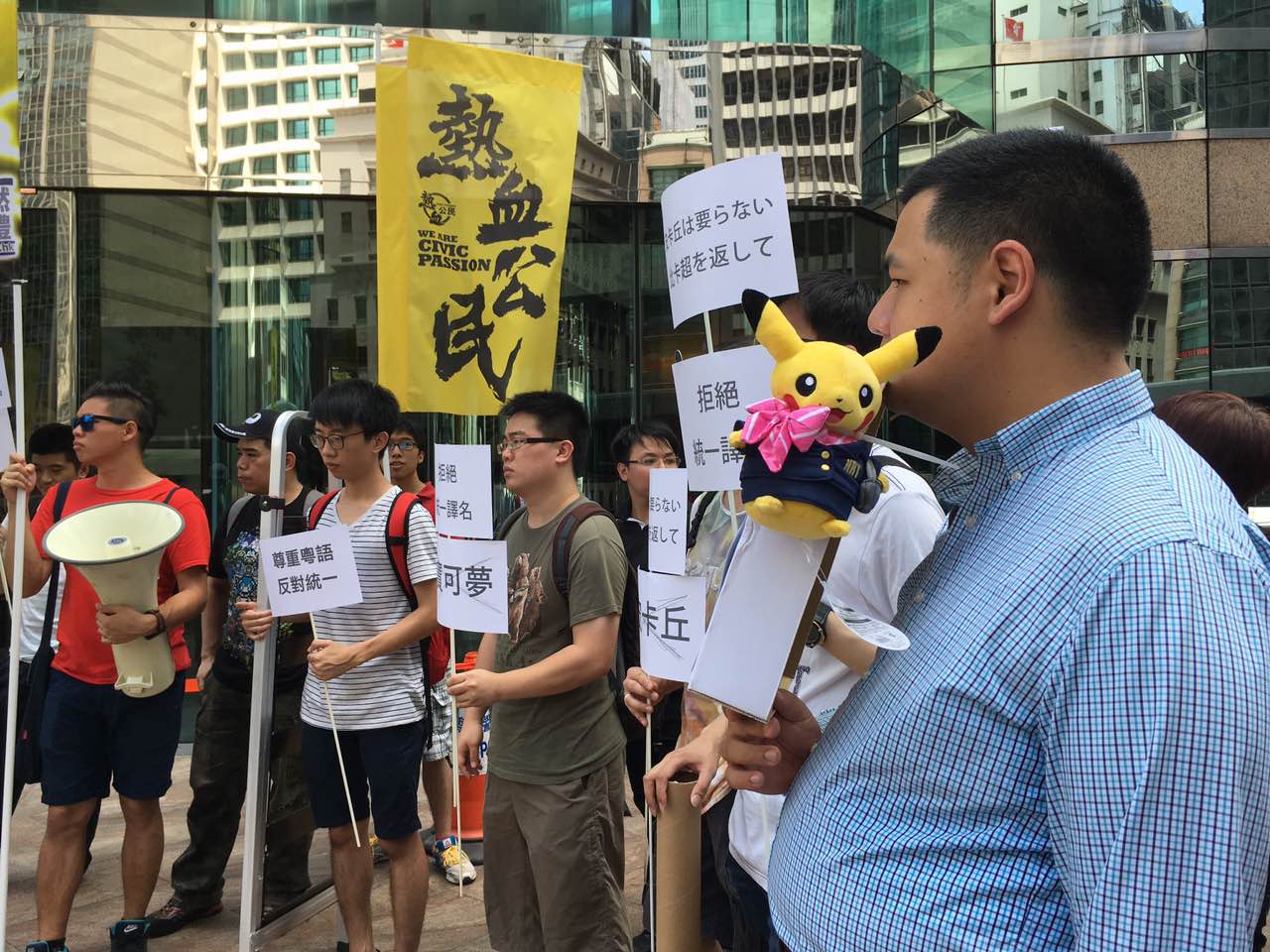Nintendo is renaming Pikachu in one of its largest markets, and Hong Kongers are not happy
Since its release in 1996, Nintendo’s Pokémon franchise has become a worldwide success, expanding from video games to comic books, movies and toys. There are hundreds of fictional Pocket Monsters that fans hoard for fights and collections, but Pikachu, the short, chubby, yellow-furred electric mouse, is a clear favorite.


Since its release in 1996, Nintendo’s Pokémon franchise has become a worldwide success, expanding from video games to comic books, movies and toys. There are hundreds of fictional Pocket Monsters that fans hoard for fights and collections, but Pikachu, the short, chubby, yellow-furred electric mouse, is a clear favorite.
Now Hong Kong citizens are about to lose the “No. 25 Pokémon” that they love.
In celebration of the franchise’s 20th anniversary, the Pokémon Company, which is partially owned by Nintendo, said in February (video in Japanese) it would release a new pair of video games, Pokémon Sun and Moon, for the handheld Nintendo 3DS game counsel.
They will be the first games in the Pokémon series available in traditional and simplified Chinese, and distributed in December in Hong Kong, Taiwan, and Mainland China.
Although it sounds like good news, the new Chinese games are being criticized throughout greater China, by fans who say they show no respect to their memories or language.
That’s because until now Pokémon comics, animation, and movies have used different translations within the region, to reflect local language and tradition.
Now Nintendo wants to unify them: Pokémon in Greater China will be officially called 精靈寶可夢, or Jingling Baokemeng in Mandarin (Jingling means “spirit” or “elf,” and Baokemeng is a transliteration of Pokémon). Earlier in Hong Kong, it was 寵物小精靈, Pet Little Elves (or Spirits), while in Taiwan, it was 神奇寶貝, Magic Babies.
The new nomenclature was not welcomed by gamers in any of the Chinese-language regions. But fans in Hong Kong, where the official language is Cantonese, not Mandarin, are the most upset.
Earlier this month, Nintendo released the Chinese-language names of the original 151 Pokémon characters. Hong Kongers were unhappy to discover many of them were renamed in a Mandarin way.
Pikachu was originally translated as 比卡超 (Bei-kaa-chyu) in Hong Kong. Now it is named 皮卡丘 (Pikaqiu). While the name 皮卡丘 in Mandarin sounds similar to the global name Pikachu (as it was always called in China and Taiwan), it reads as Pei-kaa-jau in Cantonese, which doesn’t sound the same at all.
On Monday (May 30) morning, dozens of Hong Kong protesters marched to the Japanese Consulate in Central, demanding Nintendo adopt a different Cantonese translation for the new Pokémon video game in Hong Kong.

They held up banners with slogans reading “No Pei-kaa-jau, give me back Bei-kaa-chyu,” and sang the Cantonese Pokémon theme song on their route. The demonstration was co-organized by local Lonely Media and political group Civic Passion. Just a handful of ordinary citizens participated, perhaps because it was a work day.

Nintendo “should respect our local culture,” Chu Sung Tak, a 18-year-old high school graduate at the protest said. Chu said he is a Pokémon fan, but he joined the demonstration mostly because he wanted to “defend local language.” He vowed to boycott Nintendo if the company doesn’t answer their demands.
From Nintendo’s standpoint, a unified Chinese translation is probably a simple commercial decision. But to Hong Kong activists, language is also political.
“Our culture [and] language is threatened by the Beijing government, Mandarin, and simplified Chinese,” said Wong Yeung-tat, founder of Civic Passion, a radical localist group which seeks independence from China, said. “We’re afraid Cantonese may be disappearing.”
Video game renaming is just a tiny part of the shift to Mandarin—just 40% of Hong Kong’s primary schools are teaching Cantonese, a recent survey found.
Since the release of Pokémon’s Chinese names, Hong Kong have vowed to boycott Nintendo on its Hong Kong Facebook page.
“Pikachu is 比卡超, not 皮卡丘, I hereby vow I will never buy from Nintendo again, unless you finally understand what is Cantonese and the correct Chinese usage,” one gamer wrote. ”Nintendo, why do you want to insult Cantonese?,” another asked.
Hong Kong fans have also set up a Facebook community to fight for a localized version of the Pokémon game. More than 6,000 fans have signed a petition asking Nintendo to reconsider, the group said this month. In a letter (link in Chinese), Nintendo (Hong Kong) Ltd. Games asked Hong Kong fans to read the Pokémon’s name as “Pikachu,” despite how it sounds in Cantonese.